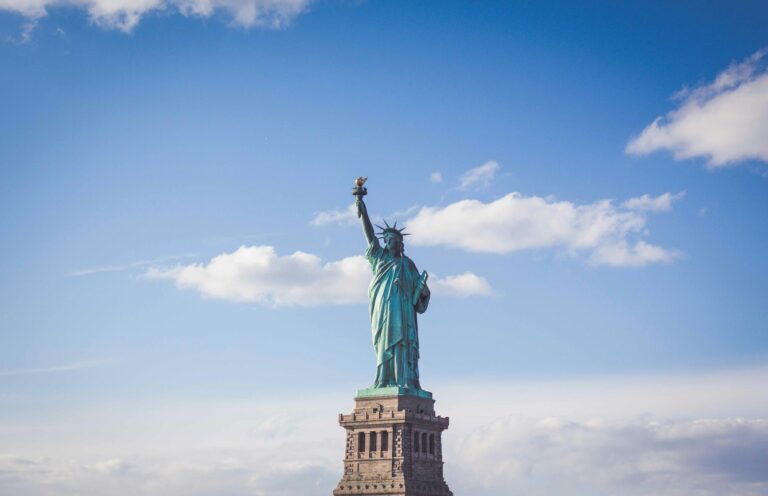Key Takeaways:
- The House passed a bill to stop noncitizens from getting SBA loans.
- The bill, called the American Entrepreneurs First Act of 2025, needs borrowers to prove citizenship.
- The vote was 217-190, with eight Democrats joining Republicans.
- This aligns with Trump-era rules and aims to help U.S. entrepreneurs.
House Approves Bill Limiting SBA Loans to Citizens
In a move to tighten the rules on who can access Small Business Administration (SBA) loans, the House of Representatives voted on Friday to pass the American Entrepreneurs First Act of 2025. This new legislation ensures that only U.S. citizens can receive SBA loans by requiring proof of citizenship for all applicants.
The bill, which follows guidelines set by the Trump administration, passed with a vote of 217-190. While most Republicans supported the measure, eight Democrats also joined them in voting yes. This decision marks a significant shift in how the federal government approaches financial support for small businesses and entrepreneurs.
What the Bill Says
The American Entrepreneurs First Act of 2025 is designed to make sure that SBA funds go solely to U.S. citizens. To achieve this, the bill requires anyone applying for an SBA loan to provide documentation proving their citizenship. This could include a birth certificate, passport, or other government-issued ID.
Supporters of the bill argue that this change will help ensure that American taxpayers’ money is used to support American businesses. They believe this will create a fairer system where U.S. citizens have better access to resources to start or grow their businesses.
Why This Matters
SBA loans are a crucial resource for many small business owners. These loans often have favorable terms, such as lower interest rates and longer repayment periods, making them easier to manage for entrepreneurs who might not qualify for traditional bank loans.
By restricting these loans to citizens, the government aims to prioritize U.S.-based businesses. Lawmakers behind the bill say this will help strengthen the American economy by keeping the financial support within the country.
How the Vote Went Down
The vote on the bill was largely along party lines, with most Republicans voting in favor and most Democrats voting against. However, eight Democrats crossed party lines to support the measure. This small but significant number of Democratic votes helped secure the bill’s passage.
What Supporters Are Saying
backers of the bill believe it’s a common-sense solution to ensure that taxpayer-funded programs benefit American citizens first. They argue that by limiting SBA loans to citizens, the government can better support domestic businesses and create jobs for American workers.
What Critics Are Saying
Opponents of the bill argue that this change could harm legal immigrants and noncitizens who contribute to the U.S. economy. Many noncitizens, such as lawful permanent residents, pay taxes and run businesses that create jobs for Americans. Critics say excluding them from SBA loans could hurt the overall economy.
Others argue that this move could lead to unintended consequences. For example, some noncitizens might decide to take their businesses—and the jobs they create—to other countries where they can access similar financial support.
How This Fits Into the Bigger Picture
The passage of the American Entrepreneurs First Act of 2025 reflects a broader debate about how the U.S. government should allocate resources. Supporters see it as a way to prioritize American businesses and workers, while critics worry it could harm the economy by excluding contributors who are not U.S. citizens.
This bill also aligns with efforts by the Trump administration to tighten eligibility for government programs. Similar measures have been proposed for other federal benefits, sparking debates about who should have access to taxpayer-funded resources.
What Happens Next
Now that the bill has passed the House, it will move to the Senate for further debate and voting. If the Senate approves the bill, it will go to the president’s desk for a final decision. If signed into law, the changes could take effect as early as next year.
If the bill becomes law, it could have far-reaching consequences for noncitizens who currently rely on SBA loans to run their businesses. It could also set a precedent for other government programs, potentially leading to stricter eligibility requirements in the future.
What the Public Thinks
Public opinion on the issue is mixed. Some people agree that U.S. resources should prioritize American citizens, while others believe that noncitizens who contribute to the economy should also have access to these programs.
In recent years, there has been growing debate about immigration and how the U.S. should handle access to government benefits. This bill is just one example of how these discussions are shaping policy decisions at the federal level.
A Closer Look at SBA Loans
For those who may not be familiar, SBA loans are a type of financing provided by the Small Business Administration. These loans are designed to help small businesses access capital to start, operate, or expand their companies. Because the SBA guarantees a portion of these loans, lenders are often more willing to provide loans to small businesses that might otherwise struggle to qualify for traditional bank loans.
SBA loans are popular among small business owners because they typically offer more flexible terms, such as lower down payments and longer repayment periods, compared to other types of loans.
The Impact on Small Businesses
If this bill becomes law, it could have a significant impact on small businesses owned by noncitizens. Many of these businesses rely on SBA loans to operate, and losing access to this financial support could make it harder for them to stay afloat.
On the other hand, supporters argue that restricting SBA loans to citizens will help ensure that these resources are available to U.S. business owners who may need them to compete in the marketplace.
What This Means for the Future
As the U.S. economy continues to evolve, decisions like this one will play a major role in shaping the business landscape. By focusing on supporting American entrepreneurs, the government aims to create an environment where U.S. businesses can thrive and create jobs for American workers.
However, critics warn that excluding noncitizens from these programs could have unintended consequences, such as driving business away from the U.S. or reducing the diversity of the small business community.
Conclusion
The passage of the American Entrepreneurs First Act of 2025 marks a significant step in the ongoing debate about how the U.S. government should allocate resources to support small businesses. While supporters believe this bill will help American entrepreneurs succeed, critics worry about the potential impact on noncitizens who contribute to the economy.
As the bill moves through the legislative process, it will be important to watch how lawmakers in the Senate and the White House respond. The outcome of this legislation could have far-reaching implications for small businesses across the country.










